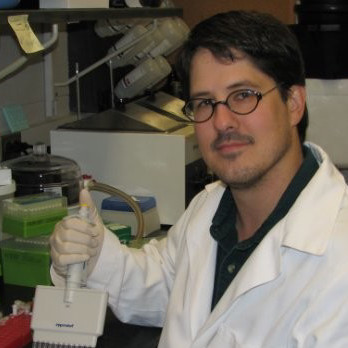
Beckley K. Davis
- Courses2
- Reviews6
- School: Franklin and Marshall College
- Campus:
- Department: Biology
- Email address: Join to see
- Phone: Join to see
-
Location:
637 College Ave
Lancaster, PA - 17603 - Dates at Franklin and Marshall College: May 2013 - October 2018
- Office Hours: Join to see
Biography
Franklin and Marshall College - Biology
Resume
2011
Franklin and Marshall College
Lancaster
PA
Assistant Professor
Franklin and Marshall College
2003
UNC at Chapel Hill
UNC at Chapel Hill
UNC at Chapel Hill
Franklin & Marshall College
Lancaster
Pennsylvania Area
Associate Professor
1996
Ph.D.
Immunology
1991
B.A.
Biology
Genetics
Molecular Cloning
Western Blotting
Protein Expression
Translational Research
Immunohistochemistry
Microscopy
Cell Biology
Flow Cytometry
ELISA
Tissue Culture
Neuroscience
Confocal Microscopy
Biochemistry
PCR
Cell
Cell Culture
Molecular Biology
Fluorescence Microscopy
In Vivo
NLRP12 suppresses colon inflammation and tumorigenesis through the negative regulation of noncanonical NF-κB signaling
Author List: Allen IC
Wilson JE
Schneider M
Lich JD
Roberts RA
Arthur JC
Woodford RM
Davis BK
Uronis JM
Herfarth HH
Jobin C
Rogers AB
Ting JP.\n\nIn vitro data suggest that a subgroup of NLR proteins
including NLRP12
inhibits the transcription factor NF-κB
although physiologic and disease-relevant evidence is largely missing. Dysregulated NF-κB activity is associated with colonic inflammation and cancer
and we found Nlrp12(-/-) mice were highly susceptible to colitis and colitis-associated colon cancer. Polyps isolated from Nlrp12(-/-) mice showed elevated noncanonical NF-κB activation and increased expression of target genes that were associated with cancer
including Cxcl13 and Cxcl12. NLRP12 negatively regulated ERK and AKT signaling pathways in affected tumor tissues. Both hematopoietic- and nonhematopoietic-derived NLRP12 contributed to inflammation
but the latter dominantly contributed to tumorigenesis. The noncanonical NF-κB pathway was regulated upon degradation of TRAF3 and activation of NIK. NLRP12 interacted with both NIK and TRAF3
and Nlrp12(-/-) cells have constitutively elevated NIK
p100 processing to p52 and reduced TRAF3. Thus
NLRP12 is a checkpoint of noncanonical NF-κB
inflammation
and tumorigenesis.
NLRP12 suppresses colon inflammation and tumorigenesis through the negative regulation of noncanonical NF-κB signaling
Marcus Mühlbauer
Liang Chen
Alex Petrucelli
Author List: Wilson JE
Petrucelli AS
Chen L
Koblansky AA
Truax AD
Oyama Y
Rogers AB
Brickey WJ
Wang Y
Schneider M
Mühlbauer M
Chou WC
Barker BR
Jobin C
Allbritton NL3
Ramsden DA
Davis BK
Ting JP.\n\n\nThe inflammasome activates caspase-1 and the release of interleukin-1β (IL-1β) and IL-18
and several inflammasomes protect against intestinal inflammation and colitis-associated colon cancer (CAC) in animal models. The absent in melanoma 2 (AIM2) inflammasome is activated by double-stranded DNA
and AIM2 expression is reduced in several types of cancer
but the mechanism by which AIM2 restricts tumor growth remains unclear. We found that Aim2-deficient mice had greater tumor load than Asc-deficient mice in the azoxymethane/dextran sodium sulfate (AOM/DSS) model of colorectal cancer. Tumor burden was also higher in Aim2-/-/ApcMin/+ than in APCMin/+ mice. The effects of AIM2 on CAC were independent of inflammasome activation and IL-1β and were primarily mediated by a non-bone marrow source of AIM2. In resting cells
AIM2 physically interacted with and limited activation of DNA-dependent protein kinase (DNA-PK)
a PI3K-related family member that promotes Akt phosphorylation
whereas loss of AIM2 promoted DNA-PK-mediated Akt activation. AIM2 reduced Akt activation and tumor burden in colorectal cancer models
while an Akt inhibitor reduced tumor load in Aim2-/- mice. These findings suggest that Akt inhibitors could be used to treat AIM2-deficient human cancers.
Inflammasome-independent role of AIM2 in suppressing colon tumorigenesis via DNA-PK and Akt
Franklin & Marshall College
